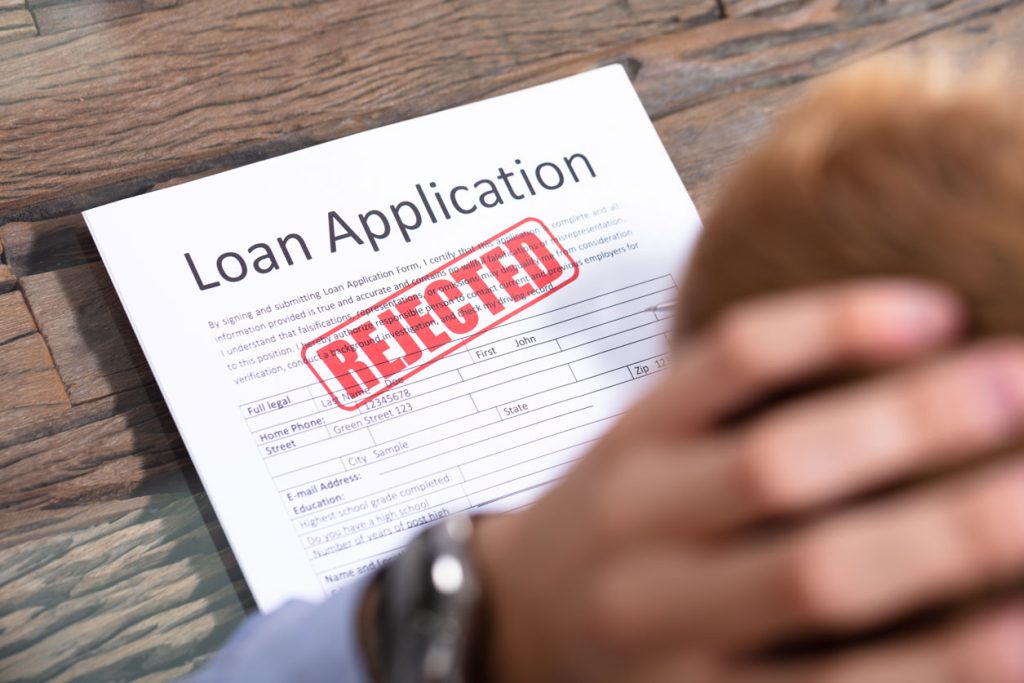Personal loans are a popular financial tool for many, and applying for one is relatively straightforward. However, loan applications can and do get rejected on occasion, but the underlying causes are often easily fixed. Here’s why your personal loan may be rejected in Singapore, and tips on how to avoid this in the future.
Top reasons why your personal loan is rejected in Singapore
You have too much debt on hand
Banks and financial institutions in Singapore are required to ensure a borrower does not take on too much debt.
Those who wish to apply for personal loans must not exceed 12 times their monthly income across all sources of unsecured debt.
Hence, if adding your personal loan would cause your existing debt obligations to go beyond 12 times your monthly income, your application is likely to be rejected.
Solution: Reduce your existing debt by paying off some debt, or restructuring your other loans. Another possible solution is to increase your income; this will allow you to borrow more. A third solution you can try is to lower the amount you are trying to borrow.
You do not meet the eligibility requirements
To hedge against default risk, lenders impose strict eligibility criteria on personal loans. Failing to meet these requirements will almost always cause your personal loan to be rejected in Singapore.
Personal loans commonly have the following requirements:
- Age: The minimum age to qualify for a personal loan from banks in Singapore is usually 21. Some loans also have a maximum age for borrowers, typically between 60 to 65 years old.
- Nationality: Borrowers are required to hold citizenship or Permanent Resident status. Meanwhile, foreigners residing here can also apply for personal loans in Singapore, but will face more stringent eligibility requirements.
- Annual income: To ensure that the loan can be paid back, borrowers are required to satisfy an annual income requirement. For instance, POSB has a minimum annual income of $20,000 for its personal loan. You may be able to find personal loans with lower annual income requirements at registered money lenders and other financial institutions.
- Proof of employment or income: Lenders also commonly ask for proof of employment or income (for those who are self-employed). Borrowers will have to provide the latest three to six months’ payslips or bank deposit history for their applications to be approved.
Solution: Before applying for your personal loan, be sure to check that you meet all of the eligibility requirements. You should also be careful to submit the right supporting documents when applying for a loan.
You have a poor credit history
Another reason why your personal loan was rejected in Singapore could be having a poor credit history.
Credit Bureau Singapore (CBS) is the organisation that maintains credit reports on all borrowers in Singapore. By law, certain types of financial transactions are reported to CBS and count towards your credit score. These transactions include applying for unsecured facilities such as credit cards and personal loans, and – more importantly – how prompt you were in paying your bills and debts.
Failing to pay your loan instalments on time, or carrying over a balance on your credit card, will lower your credit score, as it shows an inability to properly manage your debt obligations.
Having a credit score that is too low will cause your loan application to be rejected.
Solution: Obtain a copy of your credit report from CBS to check for any lapses. Then, try to improve your credit score by paying your bills and any outstanding debt regularly and on time.
READ MORE: Here are some tips on how to acquire a bad credit loan in Singapore
You are bankrupt, or facing bankruptcy proceedings
If you happen to be an undischarged bankrupt, or are facing proceedings, you will likely have your personal loan rejected in Singapore.
Bankruptcy transfers control of your assets and personal finances to a court-appointed Official Assignee, with the aim of helping you pay off your creditors. While bankrupt, the maximum loan you can borrow is $500, and any attempts to borrow more than that will automatically be rejected.
Any bankruptcy proceedings made against you will also be recorded in your credit report and expunged only five years after your bankruptcy status is officially discharged.
Solution: Try your best not to fall into bankruptcy. But if unavoidable, your next best course of action is to make good with your creditors and maintain a clean credit history until you are allowed to borrow again.
You’re applying for the wrong loan
Personal loans are versatile and you are free to use them for any purpose you wish. However, there are some situations that call for purpose-built loans, such as education loans, or renovation loans.
Hence, your lender may reject your personal loan application and recommend another better suited loan. If this happens, be sure to consider their other loan offering, as it is likely you can benefit from lower interest and other perks.
Solution: Be sure to apply for the right loan for the right purpose.
Conclusion: Personal loan rejections can be easy to remedy
As we’ve discussed in this article, many factors can cause your personal loan to be rejected in Singapore. However, the causes of rejection are easy to understand, and most can be remedied with simple adjustments.
While it can be disheartening to have your personal loan application rejected, bear in mind that there are several lenders you can approach, some of whom may be willing to work out a less-stringent loan package with you.
For instance, licensed moneylenders are able to offer a personal loan even if you have a bad credit score. They also cater to borrowers who do not meet the minimum income set by other financial institutions.
Need a personal loan but don’t meet bank requirements? Elite Investment and Credit can help. Our low-interest loans are available even to borrowers with poor credit scores or low annual incomes. Talk to us today to find out more!
About the Author

Jasbir Kaur
No fuss, No stress. You can count on me to get the facts right.

